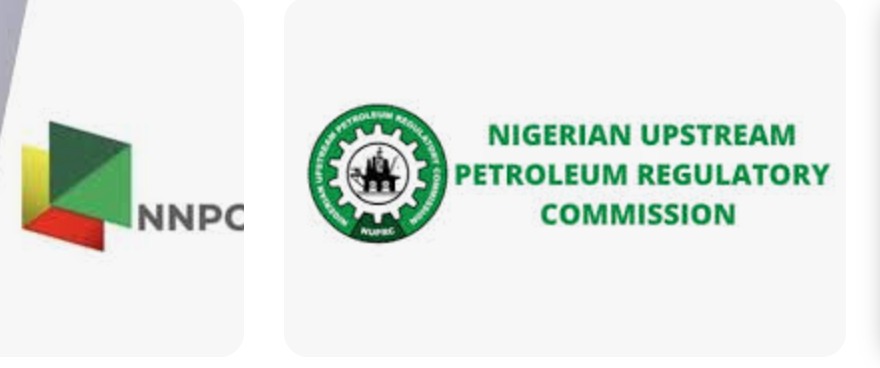Business
Spam emails constitute an invasion of privacy: Court awards N500, 000 damages against Zenith Bank

In 2020, I was invited to a round table conversation on the Canada’s Anti-Spam Legislation (CASL) which specifically protects consumers from spams and other digital threats to privacy. At the event, I argued that while Nigeria does not have a dedicated anti-spam legislation, section 37 of the Nigerian 1999 Constitution is wide enough to take care of such business malpractice and misuse of digital platforms for direct marketing purposes. Needless to say that, at the time of my speech, we had no Nigerian case law on the issue but thankfully, this has changed.
Unlike for spam emails, the Nigerian courts have had the opportunity of ruling on sending unsolicited SMS text messages as a violation of fundamental right to privacy in the decision in Emerging Market Telecommunications Services Ltd v Eneye (2018) LPELR – 46193(CA) among other decisions.
Interestingly, on the 16th day of March 2022, in a pro bono matter our Law Firm handled for a victim of unsolicited emails from a bank with which she did not maintain an account, the High Court of Ogun sitting in Ota ruled that sending of spam (unsolicited) emails constitutes violation of right to privacy guaranteed by section 37 of the Constitution of the Federal Republic of Nigeria, 1999.
In the case with suit number HCT/605/2021 between Omotola Quadri and Zenith Bank, the bank was sued for spamming our client with another customer’s transaction notifications for more than six months non-stop. When our Law Firm was briefed, we activated our client’s data protection right of Data Subject Access Request (DSAR) to which the bank responded that, our client’s email address was supplied by their customer during the account opening process, albeit without cogent proof.
When the unsolicited emails continued unabated, we approached the High Court seeking declaratory and compensatory reliefs that such mails interfered with the Applicant’s right to privacy and we argued inter alia that Zenith bank as a controller had a duty to ensure it periodically updates its customers’ personal information in compliance with the data protection principle of accuracy.
On the whole, the court agreed with us and ruled that the unsolicited emails from the bank violated our client’s right to privacy which interference entitled our client to damages assessed at N500, 000 (Five hundred thousand Naira)
Conclusively, even though the damages awarded is comparatively paltry, this decision has taken our privacy jurisprudence further by recognising and penalising the impropriety of sending spam or unsolicited emails as done in other jurisdictions.
Business
JIM OVIA NAMED DOYEN OF THE NIGERIAN BANKING INDUSTRY AT THE NGX CLOSING GONG CEREMONY

Zenith Bank Plc’s Founder and Chairman, Dr. Jim Ovia, CFR, accompanied by the bank’s Group Managing Director/CEO, Dame Dr. Adaora Umeoji, OON, on Tuesday, October 14, 2025, carried out the prestigious closing gong ceremony at the Nigerian Exchange (NGX), marking a significant milestone in the bank’s continued partnership with the capital market and the official closing of the trading day. The ceremony highlights Zenith Bank’s strong relationship with the NGX and its commitment to transparency, accountability, and bolstering investor confidence.
While speaking at the Nigerian Exchange, Dr. Umeoji expressed her delight in participating in the closing gong ceremony, acknowledging the NGX’s visionary leadership and innovative initiatives. “We are delighted to be here today to perform the closing gong ceremony – a symbol of shared progress and enduring partnership,” Dr. Umeoji said. “The NGX’s leadership has been very creative and innovative, and their electronic trading platform – X-stream played a pivotal role in the success of our recapitalization exercise, which achieved a 160% subscription. The bank’s stock price has doubled since the recapitalization exercise, from N36.50 per share to N68. Zenith Bank has also reported impressive financial results for the Half Year (H1) of 2025, becoming the most profitable bank in Nigeria and paying the highest dividend in the industry for the half year.”
“We are committed to creating value for our stakeholders and will continue to partner with the NGX to boost the Nigerian economy,” Dr. Umeoji added. “Our expansion strategy is focused on following our customers’ businesses and ensuring that we go to countries and economies where we can scale and provide more returns for our shareholders.”
She stressed that the bank plans to make good on its promise of being investors’ delight by paying quantum dividends to its shareholders by year end. According to her “For us in Zenith, we are looking forward to paying more based on the confidence the market reposed on us. We are working assiduously to ensure that we do not disappoint the Market. We are going to continue to be the investors’ delight, and we assure the market that we would continue to pay enhanced dividends come end of the year.”
Also commenting, the Director General of the Securities and Exchange Commission (SEC), Dr. Emomotimi Agama emphasised the role of the NGX in creating value in the Nigerian economic space. He said, “I want to thank you all for making the market what it is. Without you, the market wouldn’t have seen the leap that it has achieved in the last one-and-half year. I spoke earlier that at my assumption of office, market capitalization stood at N55 trillion, today it is hovering around 89 trillion and 93 trillion. That was not done by a spirit, it was done by you. Your ability, tenacity, courage, vision and transparency have moved the market where it is. Our vision is that by next year, we will have the market at 200trn.”
The Doyen of the NGX, Alhaji Rasheed Yusuf while giving his remarks, lauded the Founder & Chairman, Zenith Bank Plc, Jim Ovia, CFR for his vision and leadership. He ended by referring to him as the “Doyen of the Commercial banking sector”.
Zenith Bank remains committed to creating long-term value for its stakeholders while driving economic development in Nigeria. As the bank continues on its growth trajectory, it has its sights set on global expansion. The bank intends to strategically leverage the capital raised from the Market to enhance its scalability and deliver enhanced services to its valued customers.
The Bank’s track record of excellent performance has continued to earn the brand numerous awards, including being recognised as the Number One Bank in Nigeria by Tier-1 Capital for the sixteenth consecutive year in the 2025 Top 1000 World Banks Ranking, published by The Banker and “Nigeria’s Best Bank” at the Euromoney Awards for Excellence 2025. The Bank was also awarded Bank of the Year (Nigeria) in The Banker’s Bank of the Year Awards for 2020, 2022 and 2024; Best Bank in Nigeria from 2020 to 2022, 2024 and 2025, in the Global Finance World’s Best Banks Awards; Best Bank for Digital Solutions in Nigeria in the Euromoney Awards 2023; and was listed in the World Finance Top 100 Global Companies in 2023.
Further recognitions include Best Commercial Bank, Nigeria for five consecutive years from 2021 to 2025 in the World Finance Banking Awards and Most Sustainable Bank, Nigeria in the International Banker 2023 and 2024 Banking Awards. Additionally, Zenith Bank has been acknowledged as the Best Corporate Governance Bank, Nigeria, in the World Finance Corporate Governance Awards for four consecutive years from 2022 to 2025 and ‘Best in Corporate Governance’ Financial Services’ Africa for four consecutive years from 2020 to 2023 by the Ethical Boardroom.
The Bank’s commitment to excellence saw it being named the Most Valuable Banking Brand in Nigeria in The Banker’s Top 500 Banking Brands for 2020 and 2021, Bank of the Year 2023 to 2025 at the BusinessDay Banks and Other Financial Institutions (BAFI) Awards, and Retail Bank of the Year for three consecutive years from 2020 to 2022 and 2024 to 2025 at the BAFI Awards. The Bank also received the accolades of Best Commercial Bank, Nigeria and Best Innovation in Retail Banking, Nigeria, in the International Banker 2022 Banking Awards.
Zenith Bank was also named Most Responsible Organisation in Africa, Best Company in Transparency and Reporting and Best Company in Gender Equality and Women Empowerment at the SERAS CSR Awards Africa 2024; Bank of the Year 2024 by ThisDay Newspaper; Bank of the Year 2024 by New Telegraph Newspaper; and Best in MSME Trade Finance, 2023 by Nairametrics. The Bank’s Hybrid Offer was also adjudged ‘Rights Issue/ Public Offer of the Year at the Nairametrics Capital Market Choice Awards 2025.
Business
FirstBank Champions Inclusive Fintech Innovation at Canada-Africa Fintech Summit (CAFS 2025)

FirstBank proudly sponsored the recently held Canada-Africa Fintech Summit (CAFS 2025), which took place from August 5–8 at the Sheraton Centre in Downtown Toronto. Convened by Dr. Segun Aina, President of the African Fintech Network, CAFS 2025 was a landmark event that united fintech leaders, regulators, startups, and investors from Africa and Canada to explore scalable digital solutions, encourage investment, and promote inclusive economic development across both continents.
As a legacy institution with over 131 years of leadership in financial services, FirstBank’s sponsorship highlights its commitment to fostering cross-border collaboration, financial inclusion, and forward-thinking innovation in the global fintech landscape. Olayinka Ijabiyi, Ag. Group Head, Marketing and Corporate Communications at FirstBank, stated, “Our support of CAFS 2025 reflects our belief that collaboration between African and Canadian fintech ecosystems can lead to transformative innovations. FirstBank is proud to help shape that future.”
During a high-level panel discussion with Rudy Cuzzeto, MPP for Mississauga–Lakeshore, and David Stevenson, Country Director for the United Nations World Food Programme (Nigeria), Chuma Ezirim, Group Executive for E-Business & Retail Products at FirstBank, stressed the significance of digital collaboration in Africa’s financial ecosystem. “We’re building APIs that understand regulatory bifurcation, who has access to what, and why. The technology is the easy part. The real challenge lies in maintaining security, consent, and performance,” he explained. “In Nigeria, fintech has evolved beyond disruption to convergence, integrating banks, fintechs, and regulators into an agile and accountable ecosystem.” He further emphasized that regulatory clarity is essential for building public trust and attracting private investment in fintech, stating, “The more we collaborate, the more lessons we learn, and the greater the benefits for consumers.”
In a separate panel discussion, Rachel Adeshina, Chief Technology Officer at FirstBank, shared insights on harnessing AI to enhance credit access for the underbanked. “We’re addressing data poverty by using AI to interpret alternative data, allowing us to lend to individuals who might otherwise be invisible to the traditional credit system,” she noted. Adeshina highlighted that FirstBank has disbursed over ₦1 trillion in digital loans through this AI-driven model, achieving a remarkable repayment rate of over 99%. “This innovation was enabled not only by technology but also by a supportive environment, including API banking regulations, data privacy laws, and a shift from account-based to wallet-based banking,” she added. She also underscored the importance of scalability through collaboration, stating, “In a fragmented continent like Africa, digital scale will come from interoperability. Connecting the 54 markets is the next big challenge, and fintechs are ideally positioned to lead that initiative.”
The summit formed part of Canada’s broader Africa Strategy, aimed at fostering economic partnerships, digital cooperation, and innovation exchange. As Africa’s digital finance ecosystem continues to grow and Canada develops its own open banking framework, events like CAFS 2025 provide a timely platform to align strategies and ignite collaborations.
About FirstBank
First Bank of Nigeria Limited “FirstBank”, established in 1894, is the premier bank in West Africa, a leading financial inclusion services provider in Africa, and a digital banking giant.
FirstBank’s international footprints cut across three continents ─ Africa, Europe and Asia, with FirstBank UK Limited in London and Paris; FirstBank in The Democratic Republic of Congo, Ghana, The Gambia, Guinea and Sierra Leone; FBNBank in Senegal; and a FirstBank Representative Office in Beijing, China. All the subsidiary banks are fully registered by their respective Central Banks to provide full banking services.
Besides providing domestic banking services, the subsidiaries also engage in international cross-border transactions with FirstBank’s non-Nigerian subsidiaries, and the representative offices in Paris and China facilitate trade flows from Asia and Europe into Nigeria and other African countries.
For over 13 decades, FirstBank has built an outstanding reputation for solid relationships, good corporate governance, and a strong liquidity position, and has been at the forefront of promoting digital payment in the country with over 13 million cards issued to customers (the first bank to achieve such a milestone in Nigeria). FirstBank has continued to make significant investments in technology, innovation and transformation, and its cashless transaction drive has been steadily accentuated with virtually over 25 million active FirstBank customers signed up on digital channels including the USSD Quick Banking service through the nationally renowned *894# Banking code.
With over 43 million customer accounts (including digital wallets) spread across Nigeria, UK and sub-Saharan Africa, the Bank provides a comprehensive range of retail and wholesale financial services through more than 820 business offices and over 280,000 agent locations spread across 772 out of the 774 Local Government Areas in Nigeria.
In addition to banking solutions and services, FirstBank provides pension fund custody services in Nigeria through First Pension Custodian Nigeria Limited and nominee and associated services through First Nominees Nigeria Limited.
FirstBank’s commitment to Diversity is shown in its policies, partnerships and initiatives such as its employees’ ratio of female to male (about 41%:59%; and 37% women in management roles) as well as the FirstBank Women Network, an initiative that seeks to address the gender gap and increase the participation of women at all levels within the organisation. In addition, the Bank’s membership of the UN Women is an affirmation of a deliberate policy that is consistent with UN Women’s Women Empowerment’s Principles (WEPs) ─ Equal Opportunity, Inclusion, and Nondiscrimination.
For six consecutive years (2011 – 2016), FirstBank was named “Most Valuable Bank Brand in Nigeria” by the globally renowned The Banker Magazine of the Financial Times Group and “Best Retail Bank in Nigeria” eight times in a row, 2011 – 2018, by the Asian Banker International Excellence in Retail Financial Services Awards.
Significantly, FirstBank’s Global Credit Rating was A+ with a positive outlook while ratings by Fitch and Standard & Poor’s were A (nga) and ngBBB+ respectively both with Stable outlooks as at September 2023. FirstBank maintained the same level of international credit ratings as the sovereign; a milestone that was achieved in 2022 for the first time since 2015.
In 2024, FirstBank received notable international awards and accolades. Some of these include Nigeria’s Best Bank for ESG 2024 and Nigeria’s Best Bank for Corporates 2024 both awarded by Euromoney Awards for Excellence; Best SME Bank in Africa and in Nigeria by The Asian Banker Global Awards; Best Private Bank in Nigeria and Best Private Bank for Sustainable Investing in Africa by Global Finance Awards; Best Corporate Bank in Nigeria 2024, Best CSR Bank in Nigeria 2024, Best Retail Bank in Nigeria 2024, Best SME Bank in Nigeria 2024 and Best Private Bank in Nigeria 2024 all awarded by the Global Banking and Finance Awards.
FirstBank has continued to gain wide acclaim on the global stage with several international awards and recognitions received so far in 2025 which includes Best SME Bank in Nigeria 2025 and Best SME Bank in Africa 2025 by The Asian Banker; Best Private Bank in Nigeria 2025 and Best Private Bank for Sustainable Investing in Africa 2025 by Global Finance Awards; SME Financier of the Year in Nigeria 2025 by The Digital Banker Global SME Banking Innovation Awards; Best Retail Bank in Nigeria 2025 and Best Bank for Empowering Women Entrepreneurs in Nigeria 2025 all by The Annual Global Economics Awards.
Our vision is “To be Africa’s Bank of first choice” and our mission is “To remain true to our name by providing the best financial services possible”. This commitment is anchored on our core values of EPIC – Entrepreneurship, Professionalism, Innovation and Customer-Centricity. Our strategic ambition is “To deliver accelerated growth in profitability through customer-led innovation and disciplined execution.”
Business
ZENITH BANK TOPS NIGERIA’S BANKING SECTOR FOR THE SIXTEENTH CONSECUTIVE YEAR IN THE 2025 TOP 1000 WORLD BANKS’ RANKING

Zenith Bank Plc has retained its position as the Number One Bank in Nigeria by Tier-1 Capital for the sixteenth consecutive year, in the 2025 Top 1000 World Banks’ Rankings, published by The Banker, Financial Times Group, United Kingdom. This ranking places Zenith Bank Plc as the 581st Bank globally, with a Tier-1 Capital of $2 billion.
The global rankings, published in the July 2025 edition of The Banker, was based on the 2024 year-end Tier-1 capital of banks. This is the primary basis for most international organizations’ assessments of banks.
Commenting on this achievement, the Group Managing Director/CEO of Zenith Bank Plc, Dame (Dr.) Adaora Umeoji, OON, said, “We are thrilled to have retained our position yet again as the Number One Bank in Nigeria by Tier-1 capital for the 16th consecutive year. This achievement is a reflection of the bank’s robust financial performance, prudent risk management and steadfast dedication to delivering exceptional value to our customers and stakeholders”. She thanked the Founder and Chairman, Jim Ovia, CFR, for his visionary and transformative leadership which has played a pivotal role in cultivating a resilient and thriving institution. She also expressed her deepest appreciation to the bank’s esteemed customers for their continued loyalty to the Zenith brand, the Board for the sound corporate governance, and the staff for their relentless & tireless efforts in ensuring the bank’s success.
Tier-1 Capital describes capital adequacy, the core measure of a bank’s financial strength from a regulator’s perspective. According to the ranking, Tier-1 Capital, as defined by the Bank for International Settlements (BIS) guidelines, includes loss-absorbing capital, i.e., common stock, disclosed reserves, retained earnings, and minority interests in the equity of subsidiaries that are less than wholly owned. A strong Tier-1 capital ratio boosts investor and depositor confidence, indicating the Bank is well-capitalised and financially stable.
According to the audited financial results for the 2024 financial year presented to the Nigerian Exchange (NGX), the Bank recorded a double-digit growth of 86% in gross earnings, increasing from N2.13 trillion in 2023 to N3.97 trillion in 2024. This growth was driven by a 138% increase in interest income, supported by investment in high-yield government securities, and growth in the Bank’s loan book. Zenith Bank’s profit before tax (PBT) rose by 67%, reaching N1.3 trillion in 2024 from N796 billion in 2023. This performance saw the bank record an unprecedented total dividend payout of N195.67 billion at N5.00 per ordinary share in the 2024 financial year.
Zenith Bank’s track record of excellent performance has continued to earn the brand numerous awards including being recognised as the Bank of the Year (Nigeria) in The Banker’s Bank of the Year Awards for 2020, 2022 and 2024; Best Bank in Nigeria from 2020 to 2022, 2024 and 2025, in the Global Finance World’s Best Banks Awards; Best Bank for Digital Solutions in Nigeria in the Euromoney Awards 2023; and being listed in the World Finance Top 100 Global Companies in 2023.
Further recognitions include Best Commercial Bank, Nigeria for four consecutive years from 2021 to 2024 in the World Finance Banking Awards and Most Sustainable Bank, Nigeria in the International Banker 2023 and 2024 Banking Awards. Additionally, Zenith Bank was acknowledged as the Best Corporate Governance Bank, Nigeria, in the World Finance Corporate Governance Awards from 2022 to 2024 and ‘Best in Corporate Governance’ Financial Services’ Africa for four consecutive years from 2020 to 2023 by the Ethical Boardroom.
The Bank’s commitment to excellence saw it being named the Most Valuable Banking Brand in Nigeria in the Banker Magazine Top 500 Banking Brands for 2020 and 2021, Bank of the Year 2023 and 2024 at the BusinessDay Banks and Other Financial Institutions (BAFI) Awards, and Retail Bank of the Year for three consecutive years from 2020 to 2022 and in 2024 at the BAFI Awards. The Bank also received the accolades of Best Commercial Bank, Nigeria and Best Innovation in Retail Banking, Nigeria, in the International Banker 2022 Banking Awards.
Zenith Bank was also named Most Responsible Organisation in Africa, Best Company in Transparency and Reporting and Best Company in Gender Equality and Women Empowerment at the SERAS CSR Awards Africa 2024; Bank of the Year 2024 by ThisDay Newspaper; Bank of the Year 2024 by New Telegraph Newspaper; and Best in MSME Trade Finance, 2023 by Nairametrics. The Bank’s Hybrid Offer was also adjudged ‘Rights Issue/ Public Offer of the Year’ at the Nairametrics Capital Market Choice Awards 2025.
-

 Politics1 year ago
Politics1 year agoBREAKING: Abiodun emerges chairman of Southern Governors Forum
-

 News1 year ago
News1 year agoZenith Bank Enhances Customer Online Experience with Revamped Digital Channels
-

 News10 months ago
News10 months agoFirstBank holds groundbreaking ceremony for new 40-storey eco-friendly HQs in Lagos
-

 News1 year ago
News1 year ago‘No Disparity,’ NUPRC Confirmed 1.8m bopd NNPC Ltd Oil Production Figures At NAPE Conference’
-

 Business8 months ago
Business8 months agoZENITH BANK ASSURES SHAREHOLDERS OF QUANTUM LEAP IN FUTURE DIVIDENDS AT 34TH AGM, PAYS N195.67 BILLION FOR 2024 FINANCIAL YEAR
-

 News9 months ago
News9 months agoFIRSTBANK FILES APPEAL
-

 News1 year ago
News1 year agoUS indicts Air Peace CEO, Onyema, in fresh charges
-

 Business9 months ago
Business9 months agoZENITH BANK ACHIEVES DOUBLE-DIGIT GROWTH IN GROSS EARNINGS, PROPOSES N4.00 FINAL DIVIDEND IN FULL YEAR 2024
